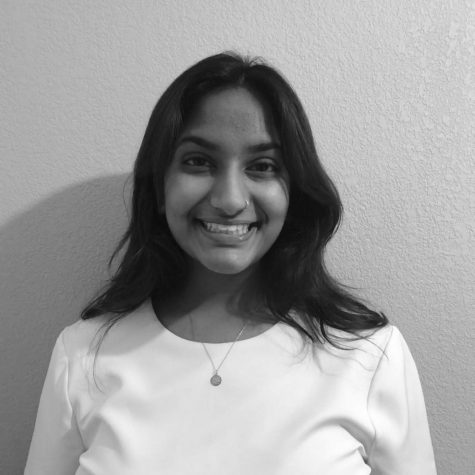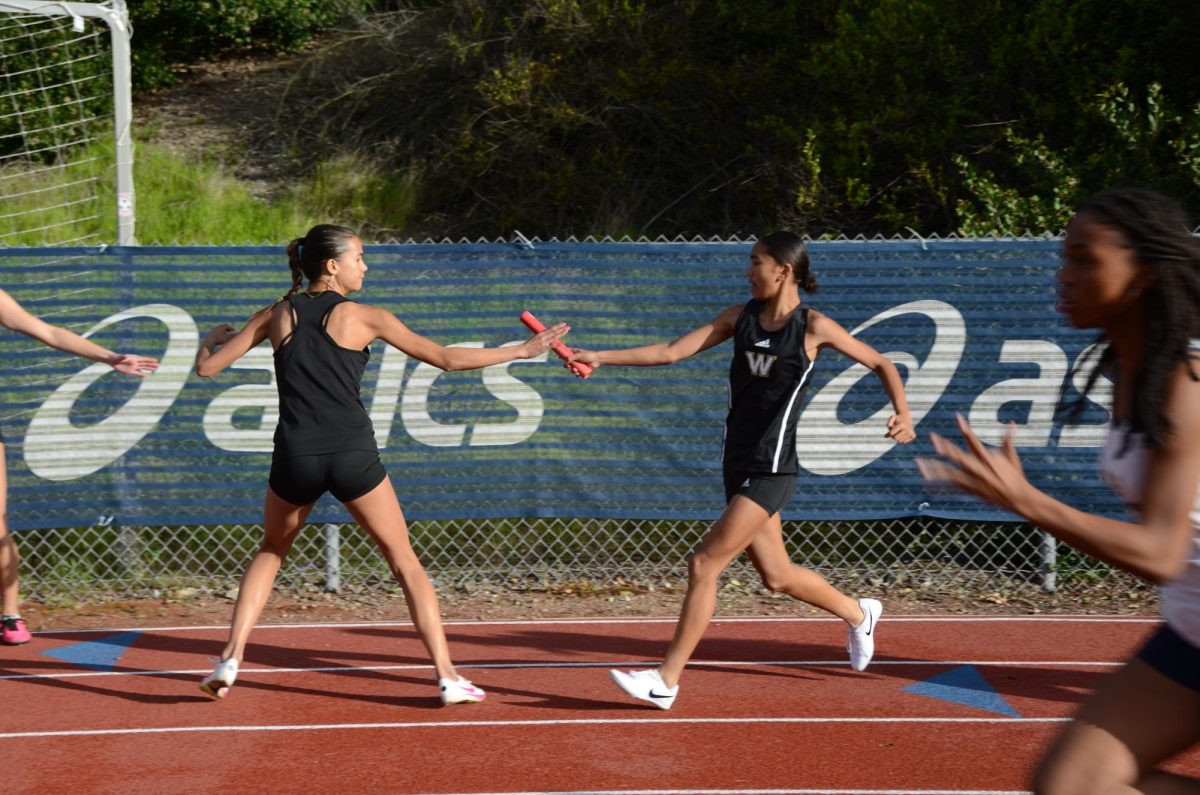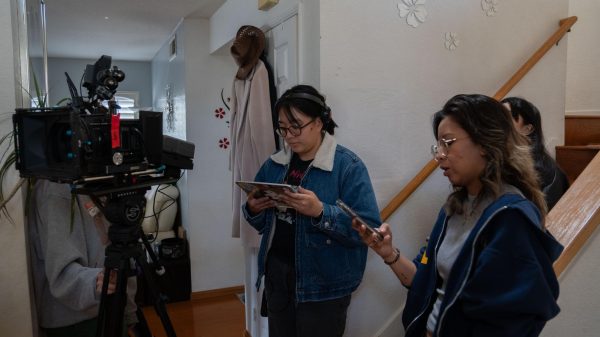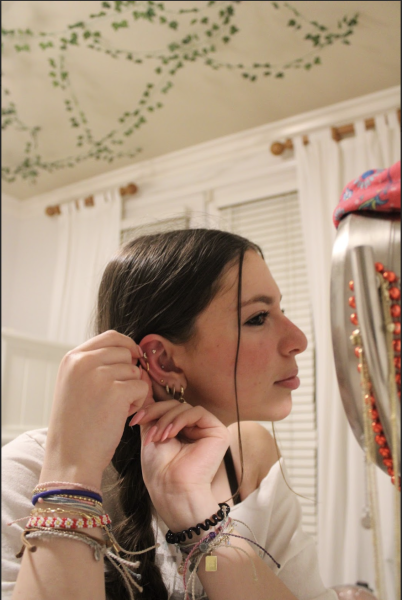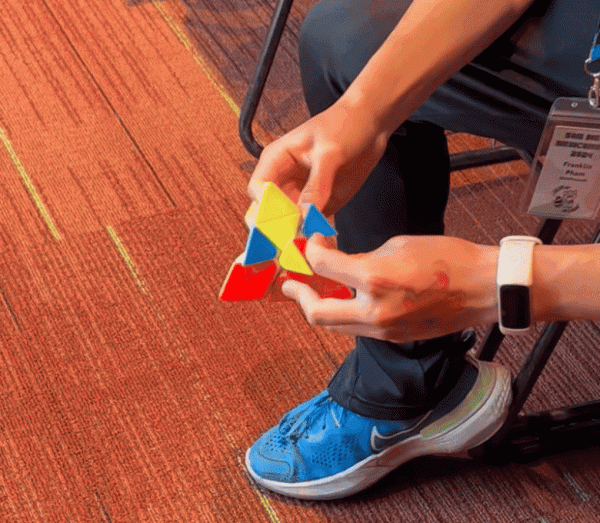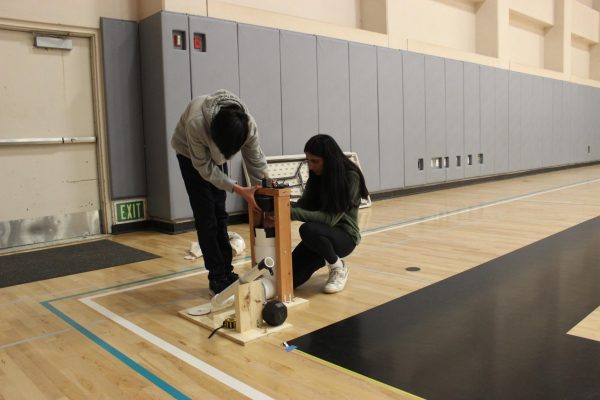Xu creates PUSD branch of GENup to advocate for change within district
January 21, 2021
As a part of GENup national, a California-based, nationwide student-led social justice organization, Winnie Xu (11), as the political director, helps to develop new campaigns for GENup to pursue. Along with the rest of the policy committee, Xu is in charge of drafting educational policy, reaching out to legislators and tracking key bills that GENup may support. Seeing the effect of GENup at a national and state level, Xu was inspired to start a branch in the Poway Unified School District.
Along with Poway High School PUSD Student Board member and GENup Vice President Emily Bylsma (12), Chief of Staff Caitlynn Hauw (10), and District Ambassador Audrey Tu (12), Xu was able to create a PUSD chapter of GENup—hoping to raise awareness of district-wide issues and create effective policy reform within the community.
“A lot of what we do is through education: we host a lot of webinars to try and educate people on local propositions, keep people up to date on what’s going on in the world,” Director of Political Affairs Hannah Danzig (12) said. “We kind of take on different initiatives based on what we see [lacking] in our district, or if there’s [change] that needs to be implemented.”
In June of last year, Xu hosted an ethnic studies webinar in an effort to spread awareness of AB 331, a bill created by GENup that would mandate Ethnic Studies as a graduation requirement for all California high schoolers. While the bill was approved for passage by the majority of state senators, Governor Newsom released a statement that calls for AB 331 to undergo revisions to its curriculum before being passed. Despite the bill not passing, Xu said that being able to start this conversation and build momentum to pass the bill was a monumental first step.
“We had almost 100 people attend that webinar, including PUSD Board member Michelle O’Connor-Ratcliff and different professors of Ethnic Studies and Africana Studies who [spoke at the webinar],” Xu said. “It was very exciting. And for me, I was hosting the webinar, so seeing so many people come on and start this conversation about ethnic studies and its impact on racial equity within schools, opening that conversation about race and approaching different literature pieces within school, was very empowering for me.”
In addition to hosting webinars, GENup uses social media as a means to be community-connected and to educate the masses. According to Danzig, by doing takeovers on their Instagram page that cover relevant district-wide and nation-wide topics—like the importance of implementing ethnic studies in PUSD high school curricula, the outcome of Amy Coney Barrett’s Supreme Court confirmation, and the abolishment of the death penalty after Brandon Bernard’s execution—GENup is able to foster discussions that lead to long-term advocacy and change.
“We’ve had open forums at our webinars or on our social media and there’s a lot of questions that I feel like could be addressed,” Director of Fundraising Emily Hauw (11) said. “But those discussions aren’t really seen in our school regularly. And I think that [we need to be] having [more of these] discussions about racial inequity and mental health [on campus through district-wide clubs]. I think that’s something that we should definitely be advocating for.”
To plan forums, webinars, and social media updates, the GENup team meets about once a week to determine what topics to cover.
“We basically just talk about what challenges we’re facing in our schools, or [topics] we are seeing [discussed], like an overarching theme that we see in our district,” Danzig said. “We talk about it and we try to figure out what we can do as a group to make change and to improve our district community. [From there] we plan the logistics of it and we assign different tasks to each individual person based on their positions.”
GENup PUSD’s most recent initiative was to implement excused absences for mental health days after seeing the effect of virtual learning across the district. The resolution, led by Bylsma and approved Jan. 14 at the school board meeting, will allow students’ absences for mental health-related issues to be excused, and will also provide students to get the help they need if necessary.
“Especially now with the social isolation we’re experiencing, students need to be able to have that resource if they just need to take a step back from school for a day or two,” Hauw said. “I know there are many students who’ve had to tell their parents they are sick or another excuse just to be excused rather than just saying they need a mental health day to relax and refocus themselves. [The resolution] emphasizes that mental health is important and that needs to be acknowledged by our teachers, counselors, and administration.”
By engaging with students in the district, GENup acts as a liaison between the students and administrators.
“Whether it’s the San Diego Board of Education, or if it’s just local, like our school’s ASB, whatever it may be, we kind of act as the middleman who addresses the problems that kids are facing,” Danzig said. “And we try to implement [change] with the help of other organizations.”
For Danzig and Hauw, joining GENup has given them the opportunity to collaborate with people across the district, advocating for educational issues and causes, to facilitate discussion and communication in an effort to make meaningful change.
“Before joining GENup, I didn’t really feel comfortable having these types of discussions with other people because of the social climate we’re in,” Hauw said. “Usually if you try to have a discussion with someone who doesn’t really align with the political opinions and ideals as you, it can get pretty bad. Having that fear made me shy away from [discussion] and not really focus on that, which right now, I think, is a super, super important thing we need to do [especially for] educating ourselves.”
Along with fighting for student representation and for a more fair education system, GENup strives to bring together a community of leaders and activists.
“I think it’s also really cool that we’re such a tight-knit group of really passionate women who, even if our political views may differ a little bit, we’re all here to try and make our community a better place,” Danzig said. “And I think that’s what we really strive for. It’s really awesome to have that kind of group behind you pushing you to learn and to do better every day.”


